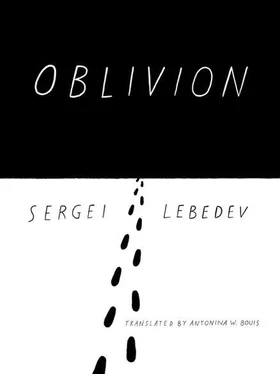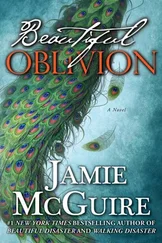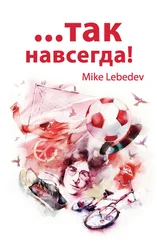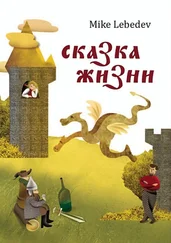I recalled all the nails I had ever hammered: how you put the sharp tip to the board, strike with a fifth of your strength so that it bites into the wood, and then when the nail is going in precisely, you hammer, enjoying the precision—and with the last blow you drive the head even with the board, like making a period, connecting what should be held together, should be connected.
The nail; it came out easily from the rotting wood and lay in my hand. Its form—the form of a period with a deep root that cannot be pulled out of where it is placed by the meaning of what was said—was asking something of me. Looking at the nail, the logs, the boards, I suddenly understood what I had not understood before: how there can be a connection between true faith and a form of superstition which demanded material proof: the devout preservation of a nail from the Cross of the Savior, or a sliver of its wood. I saw that it was not about proof or a literal, museum preservation of the object—the objects we consider inanimate that were the weapon or merely witnesses of suffering take on a threatening cast; they receive a second existence, a resemblance to a voice breaking through its own stammer—the soul of the event, the quintessence of its providential meaning settle into objects and speaks to us.
Standing with the nail in my hand, I felt that the place was weakly affecting me. Small islands of soil appeared amid the rock, so thin that even moss could not take root in it. And then it was as if I had taken a step away from myself and saw the place with different eyes—I saw that these handfuls of soil that plants avoided were human remains; or, what the remains had turned into; once they were remains and now had become soil.
I saw that what had happened here had happened conclusively; death is not instantaneous, it lives on after itself: a person dies; then those in whose memory he had lived on also die; the traces of his existence are washed away, like particles of ore in stone. This waiting work of death, which knows more about the time allotted to men and things, rarely finishes in visible time: people may not remember anything, but death is more demanding of the purity and completeness of oblivion.
In this place it had completed its work and had been aired out.
Speaking mentally or emotionally to the dead is only possible when there could be an echo from something in response; when there is a mold of presence, symbolically depicted in a death mask. But if death has shattered the death mask as well, then no one and nothing will respond.
That was the feeling I had there among the rocks; the sense of loss that cannot be overcome by feeling or thought. The earth was too clean and in the thinness of its layer too open to being seen, making it impossible to draw a connection between it and the people who had died here. Just the nail, as if it were the only thing left of an entire house, the nail was in my hand; retaining the meaning of its form, but representing the singularity of an object, and therefore it was simultaneously meaningful and useless.
The fog was lifting; the wind was chasing it away. I went up to the adits along the path among the rocks, following the way the prisoners took to the top. This was not an attempt to put myself in their shoes; but it was important to repeat someone’s path, to follow step by step; here, on the narrow path on a steep climb to where the ends of rusty rails hung over the emptiness, rails from which rocks were thrown, rails that called you to jump down, here something happened through me, the way I had been, something that was supposed to happen in this place.
The sun suddenly shone on the slag heaps of the adits; the shards of mountain crystal that filled the heaps sparkled in response with icy glitter that falsely refreshed the eye. The mountain looked so strange, the pure glow without any color admixture was so beautiful, that I stopped: that ideal clear light embodied the inanimate life of nature, the action of its laws, which in their tested majesty rejected all that was human. The slag heap had rock that had absorbed the mortal efforts of men, the blows of picks, blood and warmth of hands wounded by the rock, and now that rock was coolly sparkling in the sun; its beauty did not weaken or dim and therefore seemed dangerous, freezing, like the glow of thin spring ice beneath which is the dead, airless winter water, filled with the decay of fish.
To break away from this impression, I turned. The sun had filled the lake at the foot of the mountains with light; convex, like a drop on glass, its contour struck me in the eye. A mean trick of nature, a joke that had waited several million years: the lake looked like Lenin’s profile, which was imprinted on us by medals, badges, stamps, statues, paintings, and drawings in books.
The lake with its thick, almost pastry-like icing of sunny light seemed like a monstrous monument, monstrous because the natural forms easily and willingly took on the features of something man-made, and this acceptance, without coercion, clearly evinced the meaningless, memory-less existence of nature, which we had anthropomorphized much too frequently.
Seeing this betrayal of matter—betrayal of the men who climbed up to the heaps every day from the barracks, looking at the profile of the dead leader in whose name they were forced to labor—I rejected the feeling of closeness with these mountains, from the line of imagination that had anthropomorphized them. A different, older feeling arose: the possible humanity of nature was just a mockery, a devilish joke; man can count on no one in nature except himself.
Soon after—the expedition was continuing work in the area of the abandoned camp—I went out on a solitary hike. Two days into the trip rain clouds settled over the mountains and it rained, the wind blowing the drops horizontally, parallel to the ground; I was wearing good weatherproof gear but still I felt chilled. The bad weather was here to stay, the mountain tundra was soaked, and everything that was good for the campfire—old logs, reindeer moss, and switches of polar birch—was damp; a heavy front was coming from the west, and it was clear that by nightfall the rain would change over to snow, a northern summer blizzard, and the rocks in the mountain passes would be icy.
I was about to turn back when I noticed an awning of boards and tar paper over an old test tunnel, one of many such holes made all over the slopes for several kilometers around the camp; the prisoners opened up the ground and rubble to reach the indigenous rock for testing. The canopy had been made recently, otherwise the wind and snow would have destroyed it; someone without a tent was sheltering from the weather.
A fugitive prisoner, a zek , lay beneath the awning; the pea jacket, tattoos, everything gave him away; the soles had come off his tarpaulin boots, tied with a cord, and his feet were bleeding; he couldn’t go on without shoes, he had torn pieces from his jacket and wrapped them around his feet, but the fabric with cotton batting fell apart in the rain; he saw the snow clouds over the top of his tunnel and he probably knew he would die that night.
I knew what he would have done to me if he had found me asleep in my tent; the fugitive was very skinny, his face was overgrown with hair with bits of moss, leaves, wood chips, and dirt in it: he had been wandering in the taiga for a month or more, having decided to run not toward the railroad but over the mountains to a different region where they would not be looking for him. He huddled in the hole, bent over, holding a three-sided shiv made from a file, no longer human or even humanoid; he was a wood spirit crawled up from underground. If I had had a rifle, I would have shot him and covered him with stones—out of fear, out of the sensation that this really was an underground creature that had killed an escaped prisoner.
Читать дальше












